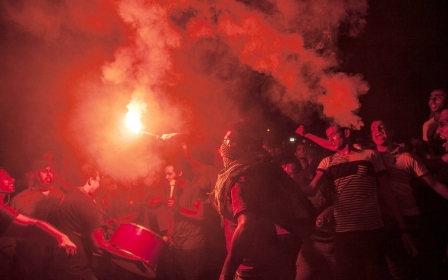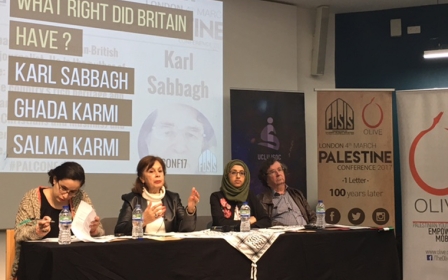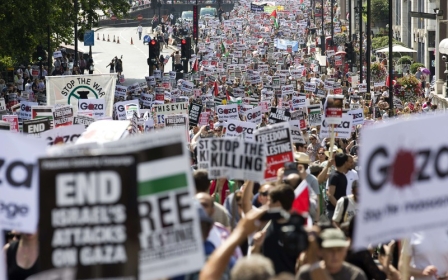Muslim leaders slam UK police chief ties to 'demonising' think tank
Britain's leading Muslim representative body has criticised the decision by a top Metropolitan police chief to speak at a launch event by an organisation it accuses of "demonising" Muslims.
Mark Rowley, assistant commissioner for London's Metropolitan Police, was set to speak at the Henry Jackson Society's launch of its "Islamist Terrorism: Analysis of Offences and Attacks in the UK" on Tuesday.
The report identifies and profiles attacks by alleged Islamists in the UK between 1998 and 2015.
The Muslim Council of Britain warned against Rowley endorsing the organisation, in a statement to Middle East Eye.
"Our police services quite rightly place a strong emphasis in building strong relationships with the communities they serve," the MCB said.
"Our senior police officers should therefore be wary of endorsing organisations who have consistently served to demonise British Muslim communities.
"However objective and factual the report may be, the accompanying narrative released by the Henry Jackson Society seems to make oblique references to the usual slurs levelled at Muslims: that Muslims do not integrate, are not part and parcel of British society, and are therefore likely to be terrorists.
"This is a picture we do not recognise."
The Henry Jackson Society was founded in 2005 and in its founding principles calls for the promotion of liberal democracy, capitalism and human rights across the globe, particularly in the wake of what it saw as the failure to effectively intervene in the collapse of the former Yugoslavia.
But Muslim organisations and activists have criticised what they see as an authoritarian streak in the think tank focusing in particular on British Muslim communities.
Hilary Aked, a freelance researcher and co-author of a report on the organisation for the Cordoba Foundation, said the Henry Jackson Society had an "inglorious history of propagating questionable research and targeting Muslims with spurious 'extremism' smears."
"For Mark Rowley to agree to speak at this report launch underlines the Met Police’s failure to listen not only to serious concerns about the think tank’s links to Islamophobia, but also to widespread criticism of the flawed and discriminatory Prevent policy which the Henry Jackson Society has long supported," Aked told Middle East Eye.
Douglas Murray, the associate director of the organisation, has caused controversy in the past for saying that life "must be made harder across the board" for Muslims in Europe following the 2005 London bombings, In a 2010 debate for Intelligence Squared, he argued against the motion "Islam is a religion of peace".
The Henry Jackson Society has, in turn, critcised the MCB in past, accusing it of being "not fit for purpose" to tackle what it sees as a problem of growing radicalisation among UK Muslims.
MEE asked the Henry Jackson Society for a response to the MCB's comments, which was not forthcoming at the time of publication.
On Monday, Rowley defended the think tank's new report, describing it as "objective".
"They've done a piece which is very analytical and is based on looking at all the data on those convicted of terrorism in the last 15 years, so it's a pretty objective piece of work," he told BBC 5Live.
The relationship between the police and the British Muslim community has long been considered tense, though the founding of the National Association of Muslim Police in 2007 and other similar moves have been put into place in order to address the issue.
Nevertheless, a survey carried out by Channel 4 suggested that only 34 percent of British Muslims would inform the police if they thought somebody they knew was involved with people who support "terrorism" in Syria.
Middle East Eye propose une couverture et une analyse indépendantes et incomparables du Moyen-Orient, de l’Afrique du Nord et d’autres régions du monde. Pour en savoir plus sur la reprise de ce contenu et les frais qui s’appliquent, veuillez remplir ce formulaire [en anglais]. Pour en savoir plus sur MEE, cliquez ici [en anglais].




